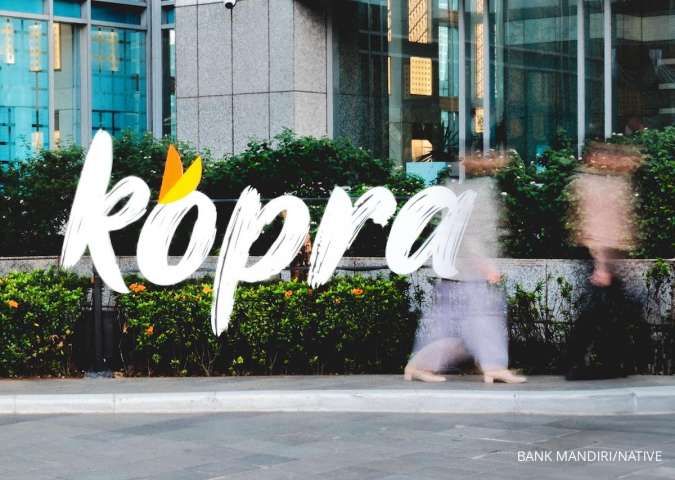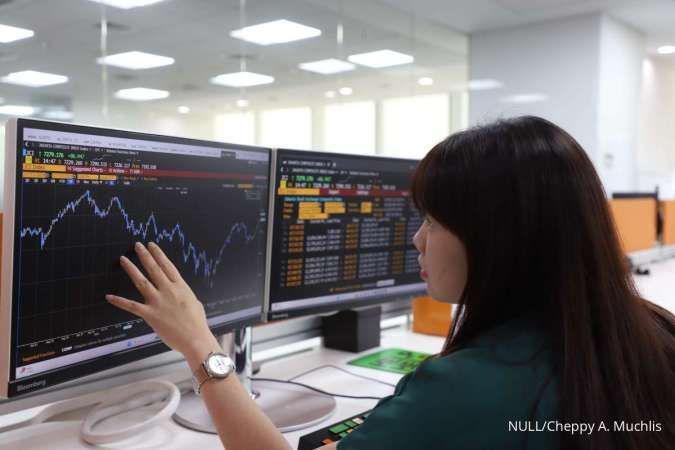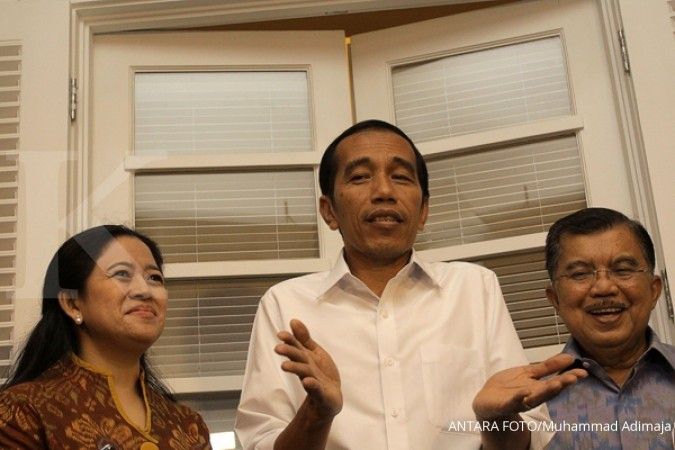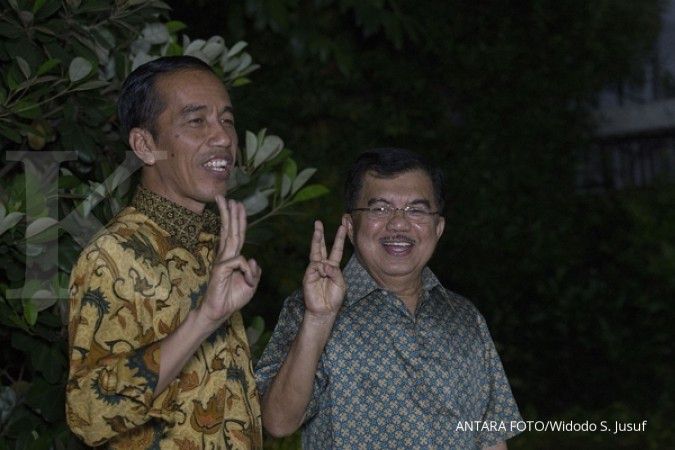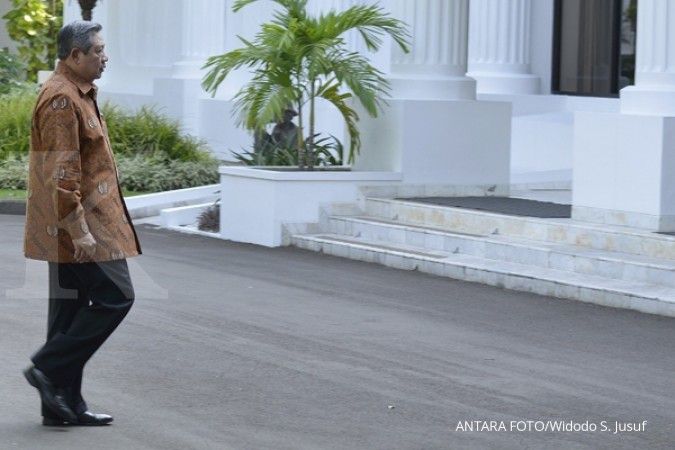JAKARTA. Despite his pledge to avoid transactional politics, president-elect Joko “Jokowi” Widodo finally caved in to the demands from political parties to include more politicians in his Cabinet. Jokowi told a short press briefing on Monday evening that his Cabinet would consist of 34 ministries, which would be led by 16 party politicians and 18 non-party professionals. Jokowi’s decision to give almost half of the seats in his Cabinet to party members could dampen expectations from the public who wanted more professionals in his Cabinet. In fact, Jokowi’s Cabinet will resemble the current Cabinet of President Susilo Bambang Yudhoyono, which includes 17 partisan politicians. During his presidential campaign, Jokowi expressed views against transactional politics and urged politicians to resign from their parties if they intended to join his Cabinet. The Monday evening announcement could be seen as the culmination of Jokowi’s effort to placate members of his coalition, the Indonesian Democratic Party of Struggle (PDI-P), the NasDem Party, the National Awakening Party (PKB), the Hanura Party and the Indonesian Justice and Unity Party (PKPI) — all of which had demanded roles in his administration. Jokowi is also struggling to woo support from other political parties, notably from Yudhoyono’s Democratic Party, the National Mandate Party (PAN) and the United Development Party (PPP) in order for his administration to gain majority support in the House of Representatives. The three parties are currently grouped in the Red-and-White Coalition led by losing presidential candidate Prabowo Subianto. The coalition has a majority in the House. Jokowi declined to respond to questions about his decision to engage more politicians in his Cabinet, saying “The most important thing is that we want to build a strong Cabinet that is ready to work on our programs.” He then added that all ministers would work hard to achieve their objectives because they would no longer have deputies. Jokowi, however, decided to keep the deputy minister of foreign affairs. The president-elect also said that he would maintain the existing three coordinating ministerial posts, Coordinating Political, Legal and Security Affairs Minister, Coordinating People’s Welfare Minister and Coordinating Economic Minister, although there would be slight changes to their names. Although his transition team is still working on the details of the Cabinet, Jokowi guaranteed that the ministerial posts promoting food security, maritime affairs and population would be given priority. The deputy of Jokowi’s transition team, Andi Widjajanto, said that Jokowi had also insisted that several ministerial posts should be made off-limits to political party politicians. “We have formulated general criteria for all ministers, including integrity, track records and ideology. Pak Jokowi and Jusuf Kalla have the power to assess all the ministerial candidates based on these criteria, including those coming from political parties,” Andi Said. In the press briefing, Jokowi said that politicians would not be allowed to take the reins of the Finance Ministry, the State-Owned Enterprises Ministry, the Energy and Mineral Resources Ministry or the Agriculture Ministry. Jokowi, scheduled to be sworn in as president on Oct. 20, plans to announce his Cabinet lineup at the end of this month. Political analyst Arya Budi from the Pol-Tracking Institute said that Jokowi’s team had resorted to pragmatism to pick members for his Cabinet. “The current political system has made it difficult for Jokowi not to accommodate political parties that have supported his presidential bid,” he said. (Margareth S. Aritonang and Bagus BT Saragih)
Jokowi resorts to pragmatism
JAKARTA. Despite his pledge to avoid transactional politics, president-elect Joko “Jokowi” Widodo finally caved in to the demands from political parties to include more politicians in his Cabinet. Jokowi told a short press briefing on Monday evening that his Cabinet would consist of 34 ministries, which would be led by 16 party politicians and 18 non-party professionals. Jokowi’s decision to give almost half of the seats in his Cabinet to party members could dampen expectations from the public who wanted more professionals in his Cabinet. In fact, Jokowi’s Cabinet will resemble the current Cabinet of President Susilo Bambang Yudhoyono, which includes 17 partisan politicians. During his presidential campaign, Jokowi expressed views against transactional politics and urged politicians to resign from their parties if they intended to join his Cabinet. The Monday evening announcement could be seen as the culmination of Jokowi’s effort to placate members of his coalition, the Indonesian Democratic Party of Struggle (PDI-P), the NasDem Party, the National Awakening Party (PKB), the Hanura Party and the Indonesian Justice and Unity Party (PKPI) — all of which had demanded roles in his administration. Jokowi is also struggling to woo support from other political parties, notably from Yudhoyono’s Democratic Party, the National Mandate Party (PAN) and the United Development Party (PPP) in order for his administration to gain majority support in the House of Representatives. The three parties are currently grouped in the Red-and-White Coalition led by losing presidential candidate Prabowo Subianto. The coalition has a majority in the House. Jokowi declined to respond to questions about his decision to engage more politicians in his Cabinet, saying “The most important thing is that we want to build a strong Cabinet that is ready to work on our programs.” He then added that all ministers would work hard to achieve their objectives because they would no longer have deputies. Jokowi, however, decided to keep the deputy minister of foreign affairs. The president-elect also said that he would maintain the existing three coordinating ministerial posts, Coordinating Political, Legal and Security Affairs Minister, Coordinating People’s Welfare Minister and Coordinating Economic Minister, although there would be slight changes to their names. Although his transition team is still working on the details of the Cabinet, Jokowi guaranteed that the ministerial posts promoting food security, maritime affairs and population would be given priority. The deputy of Jokowi’s transition team, Andi Widjajanto, said that Jokowi had also insisted that several ministerial posts should be made off-limits to political party politicians. “We have formulated general criteria for all ministers, including integrity, track records and ideology. Pak Jokowi and Jusuf Kalla have the power to assess all the ministerial candidates based on these criteria, including those coming from political parties,” Andi Said. In the press briefing, Jokowi said that politicians would not be allowed to take the reins of the Finance Ministry, the State-Owned Enterprises Ministry, the Energy and Mineral Resources Ministry or the Agriculture Ministry. Jokowi, scheduled to be sworn in as president on Oct. 20, plans to announce his Cabinet lineup at the end of this month. Political analyst Arya Budi from the Pol-Tracking Institute said that Jokowi’s team had resorted to pragmatism to pick members for his Cabinet. “The current political system has made it difficult for Jokowi not to accommodate political parties that have supported his presidential bid,” he said. (Margareth S. Aritonang and Bagus BT Saragih)

